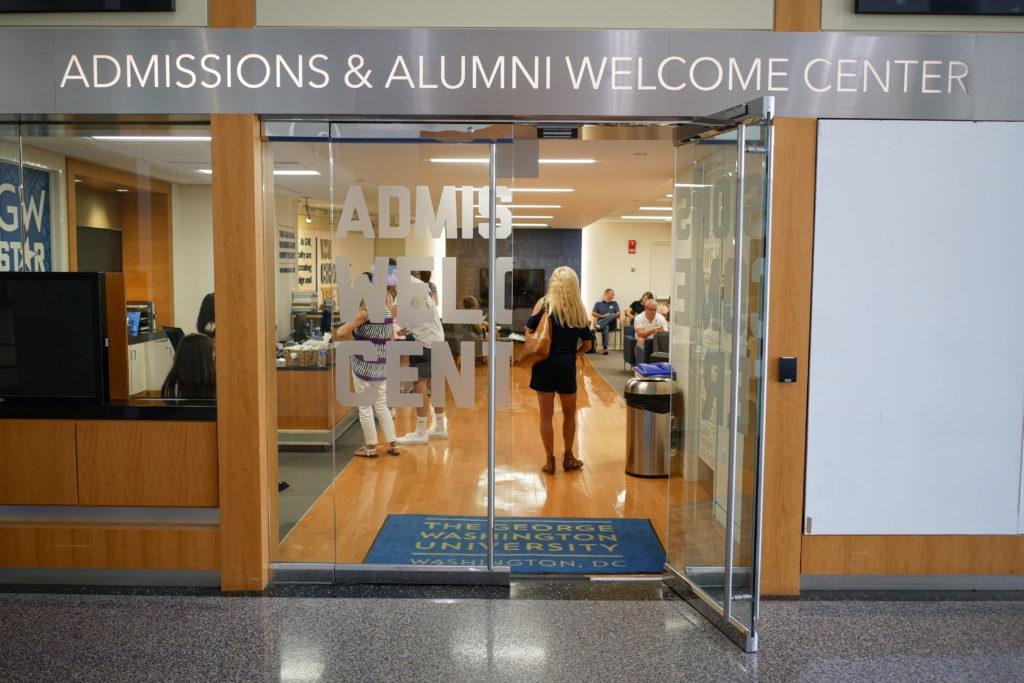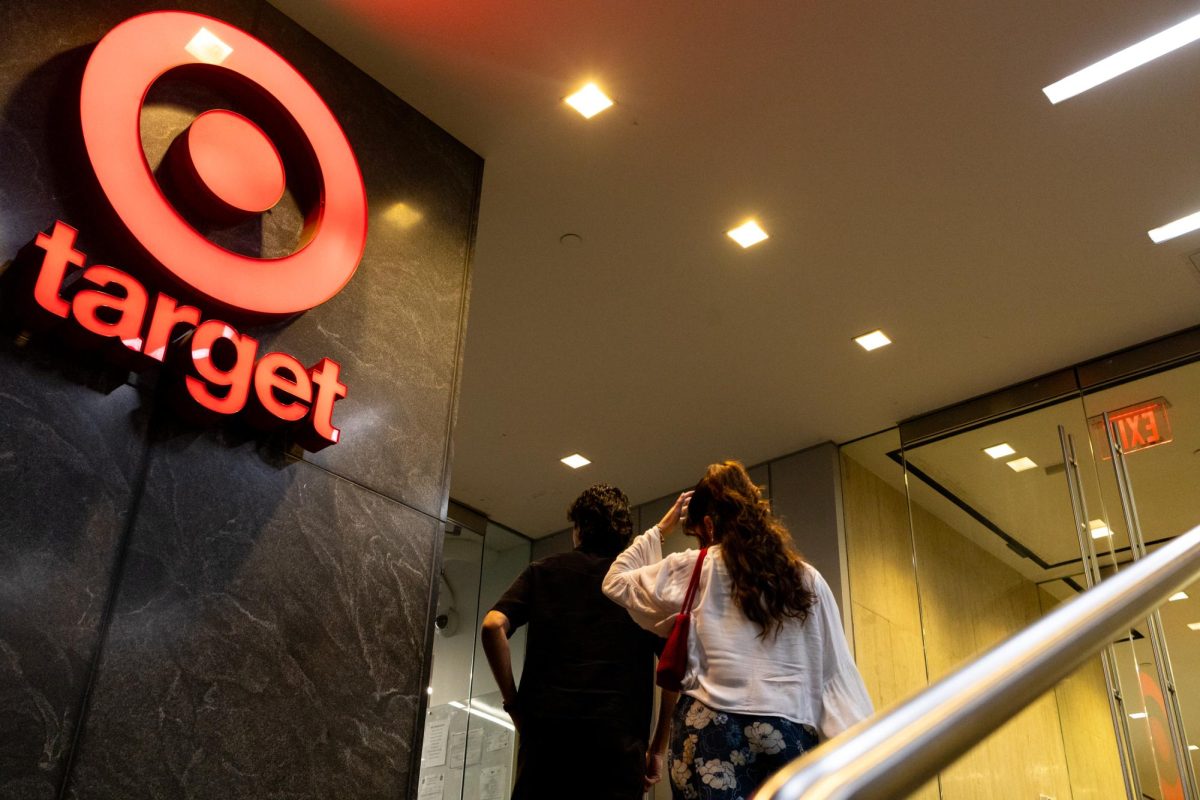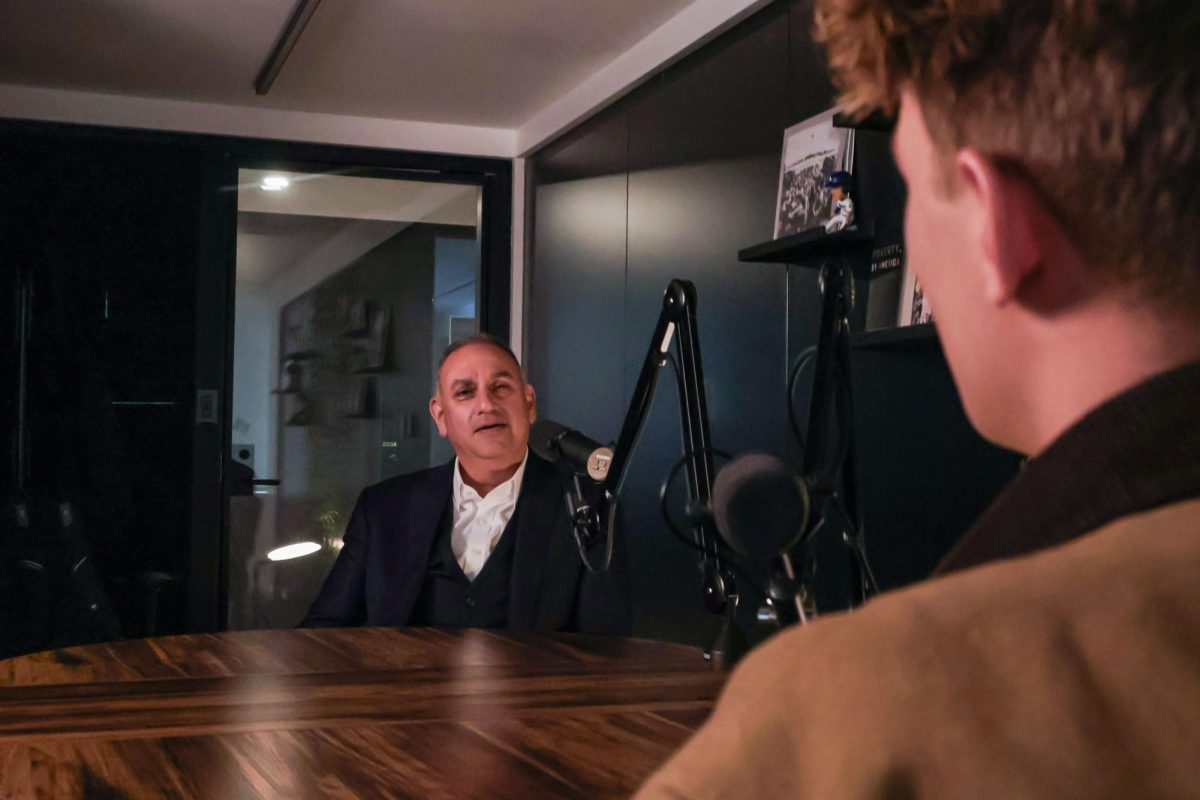The Office of Undergraduate Admissions is adjusting its recruitment events this fall amid the ongoing pandemic.
Potential applicants can tune in to more than 50 panel discussions specific to majors and campus life as well as GW Day, an all-day workshop on life at GW, the office’s events website states. Ben Toll, the dean of undergraduate admissions, said officials have greater access to students from around the country and world through virtual programming, like Zoom informational sessions and college fairs.
“Even before the University officially transitioned to remote instruction in March, the undergraduate admissions office has been reimagining the tactics and strategies by which we recruit students to best fit a virtual environment,” Toll said in an email. “In fact, the virtual environment opens some new opportunities as it removes some of the logistical barriers that can constrain our work.”
He said the office is working with high school college counselors to identify how to connect with prospective students attending school in person and fully virtual. He said the admissions team participated in nine more high school visits and college fairs between Aug. 1 and Sept. 15 than they did last year.
Toll said the office is creating a group of admissions staff to identify “changes in student behavior” through students’ applications as a way of connecting with applicants impacted by COVID-19. He said admissions counselors are “well-positioned” to engage with students and offer additional assistance if they notice “concerning patterns” or issues similar to this summer’s Connect GW text messaging initiative.
“There are great schools throughout the world, but sometimes the in-person logistics prevent us from making those personal connections,” Toll said. “This year, we are taking full advantage that those barriers have been erased. The disproportionate impact of COVID-19 across race, ethnicity, socioeconomic status and geography will have real impacts on how students approach their college search.”
He said Your GW, a weekend-long recruitment program for high school seniors interested in learning about GW, will operate as a semester-long mentorship program for prospective students. He said students who are accepted to the Your GW program will be paired with office staff and current students to guide them through conversations on topics like diversity, equity and inclusion and tips on the admission process.
Students taking part in Your GW 2020 will meet every other week with a small group of admissions staff members and current students in the Dean’s Council for Multicultural Recruitment, according to the admissions website.
“A lot of students and counselors rely on fly-in programs for exposure to different colleges they may never hear about, especially ones out of state or further away,” Toll said. “With the inability to have physical fly-in programs due to COVID-19, students are still looking for some way to connect with schools.”
College admissions experts said admission officers need to emphasize building personal connections with students at virtual college fairs and high school informational sessions to assist students navigating the college application session.
Andrea Felder, the assistant vice provost for undergraduate admissions at American University, said the office created a “robust” plan to connect with students, families and high school counselors this fall at more than 50 virtual AU information sessions.
Felder said the department has “significantly increased” its outreach with simulated classes for students to hear directly from faculty and a joint counselor hosted event with D.C.-area colleges like GW to share information about their institution.
Dave Kobzina, the assistant director for transfer recruitment at Portland State University in Oregon, said the department is offering longer personalized adviser meetings with students interested in applying and hosting live sessions like virtual tours on Zoom with enrolled students to walk families through the campus.
He said the pandemic’s uncertain timeline might leave students reconsidering whether they want to apply to colleges that are out of state or far from home because of concerns with affordability, which can mean a smaller pool of applicants.
College administrators anticipate students grappling with the financial and psychological impacts of the virus could choose to stay closer to home, go to less expensive schools, take a year off or not go to college at all.
“We have a lot of students that need that extra help,” Kobzina said. “For many students, and I’m not classifying any one group, online learning is posing challenges. So how can we be empathetic to them and try to assist them as best as possible?”








